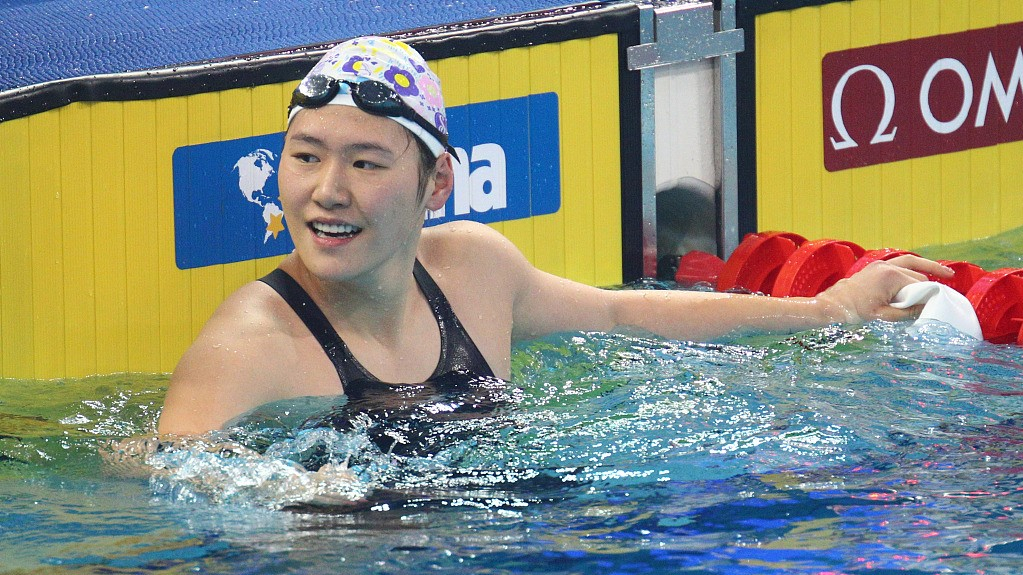
Ye Shiwen of China finishes the women's 100-meter breaststroke competition in FINA Champions Swim Series in Guangzhou, April 27, 2019. /VCG
Ye Shiwen of China finishes the women's 100-meter breaststroke competition in FINA Champions Swim Series in Guangzhou, April 27, 2019. /VCG
Last week, the International Swimming Federation (FINA) announced that the World Aquatics Championships in Japan's Fukuoka will be postponed from July 16 – August 1, 2021 to May 13 – 29, 2022 to avoid clashing with the delayed Summer Olympics in Tokyo.
The change will further upset the future plans of the Chinese national swimming and diving teams, but can also lead to new opportunities.
Ye Shiwen won gold in the 200- and 400-meter women's individual medley events at the 2012 Summer Olympics in London, but at one point her performance took a hit because of struggles on a personal level. However, in the last two years, Ye finally overcame her problems and gradually reconnected with her inner gold medalist. The additional year will give her more time to refine herself in the pool. Moreover, Ye's biggest rival, Katinka Hosszu from Hungary will be 33 in 2021.
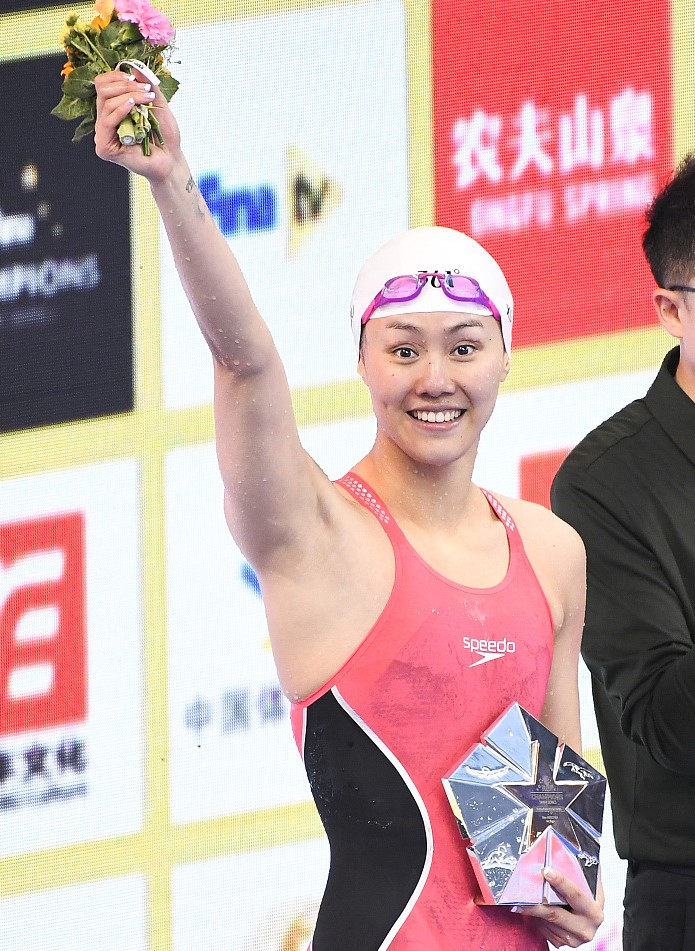
Liu Xiang of China celebrates with the championship trophy of women's 50-meter freestyle in FINA Champions Swim Series in Shenzhen, January 15, 2020. /VCG
Liu Xiang of China celebrates with the championship trophy of women's 50-meter freestyle in FINA Champions Swim Series in Shenzhen, January 15, 2020. /VCG
Women's 50-meter backstroke world record holder Liu Xiang admitted that the postponement of the Olympics will definitely affect athletes, but it depends on how you look at it. "We are all in a battle, whoever is able to exploit the unexpected incident will win in the end," said Liu. She expressed belief that the value of the Olympic gold medal is not the victory that happens once every four years, but also the process of overcoming various hardships to chase the victory.
Liu's coach He Xinzhong revealed that the delay to the Olympics may cause unexpected changes next year. Furthermore, athletes have been preparing for the event for such a long time, but right before they could release all the energy they have saved, the competition was gone. This could strongly upset the athletes. Nonetheless, such a delay is a rare occasion – most athletes never saw it in their careers – so it could be a valuable test to one's mental strength. If an athlete can adapt to it and eventually beats the challenge, they will definitely grow stronger.
The Chinese swimming team has been training behind closed doors in three locations since the outbreak of the coronavirus. It has been helpful that athletes can still conduct systematic practice, but on the other hand, staying in a closed facility for long periods of time also imposes a challenge to them both mentally and physically. The coach group is doing everything to help athletes relax and deal with stress.
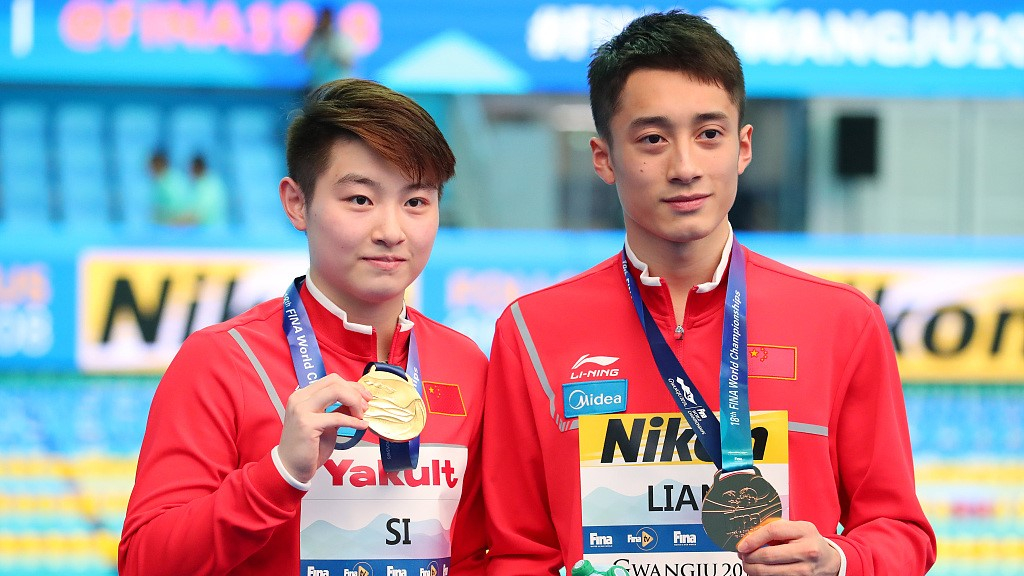
Lian Junjie (R) and Si Yajie of China pose with the gold medals of mixed diving 10-meter platform synchro in the FINA World Championships in Gwangju, South Korea, July 13, 2019. /VCG
Lian Junjie (R) and Si Yajie of China pose with the gold medals of mixed diving 10-meter platform synchro in the FINA World Championships in Gwangju, South Korea, July 13, 2019. /VCG
Divers also training behind closed doors and, compared to swimmers, they have more expectations of pocketing Olympic golds. In fact, they are also more confident.
Wang Han, 29, has never attended the Olympics and but she never gave up her dream of winning the Olympic title. 20-year-old Lian Junjie is younger and more energetic. He will use the extra time to work on new moves in order to stay competitive.
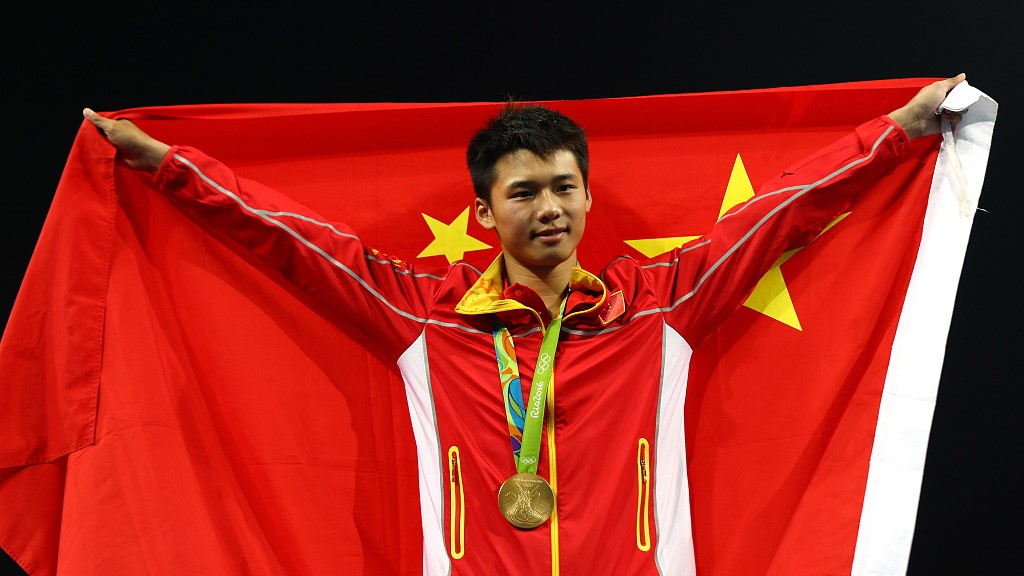
Chen Aisen of China celebrates with the gold medal of men's diving 10-meter platform in the Summer Olympics in Rio de Janeiro, Brazil, August 20, 2016. /VCG
Chen Aisen of China celebrates with the gold medal of men's diving 10-meter platform in the Summer Olympics in Rio de Janeiro, Brazil, August 20, 2016. /VCG
Chen Aisen who won the men's 10-meter platform and 10-meter synchro golds at the 2016 Summer Olympics in Rio de Janeiro has been struggling with injury for quite a while. Fortunately, he now has one extra year to recover but it will take more than full chase to catch up with his teammates.
"Postponing the Olympics will affect everyone. Anything can happen in the extra year and that gives me more time to adjust and improve myself," said Chen. "We saw a lot of foreign athletes try to train even though they were quarantined at home. Compared with them, we were given the best conditions, how could we not work hard?"
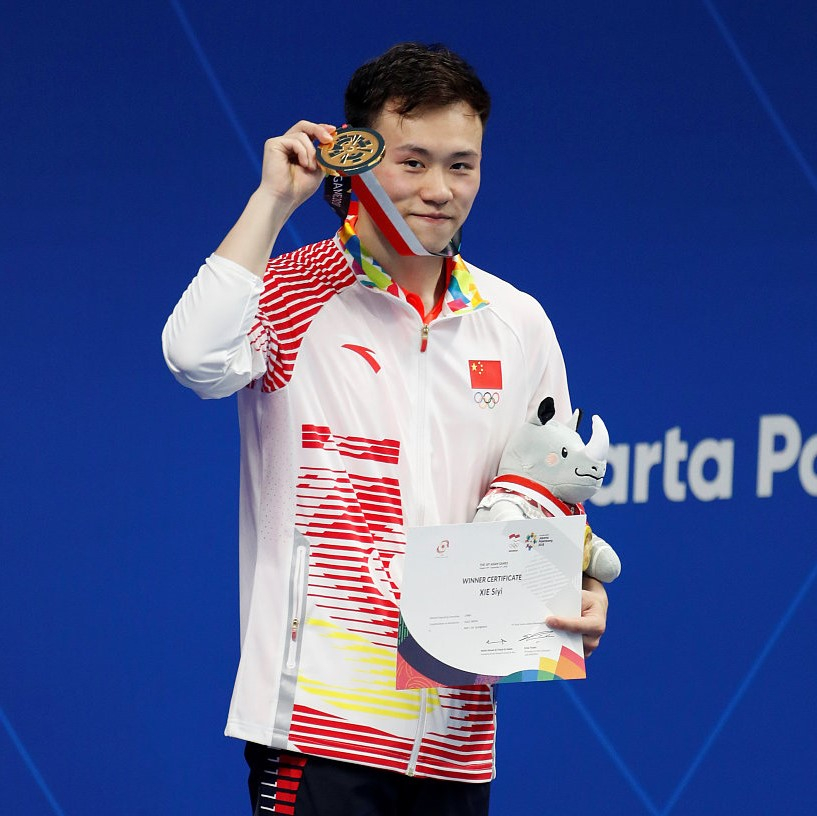
Xie Siyi of China poses with the gold medal of men's diving 3-meter springboard in the Asian Games in Jakarta, Indonesia, August 31, 2018. /VCG
Xie Siyi of China poses with the gold medal of men's diving 3-meter springboard in the Asian Games in Jakarta, Indonesia, August 31, 2018. /VCG
Xie Siyi, China's springboard ace, almost lost his career to injury and thus knows better than others how valuable every minute of his career is. In order to meet all the unpredictable changes in the coming year, he must become something better. "Personally, I get my time to refine my skills and improve my stamina thanks to the extra time given by the Olympic delay. Self-encouragement is not enough now, we need to support and encourage each other to overcome all the difficulties that fall onto us," said Xie.